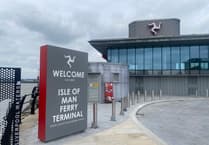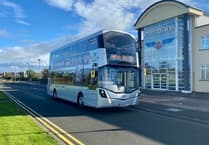A report into the island’s active travel strategy is recommending the Department of Infrastructure works to include climate change objectives in its plan.
The environment and infrastructure policy review committee’s first report for 2022-23 looks at active travel, the means of choosing to walk or cycle rather than use motorised transport.
One of its four recommendations calls on the DoI to work with the Climate Change Transformation Team, Department of Education, Sport and Culture, local authorities and others to ‘pursue objectives relating to climate change’.
It’s part of the aim to develop a broader definition for active travel.
Those on the committee are Rob Mercer, its chair, Marlene Maska and Tim Johnston.
Published in January 2023, the DoI’s Departmental Plan pledged to create a ‘2023-28 Active Travel Policy and Strategy’ under the banner of ‘cross-cutting issues that the department is leading on’, as a way to ‘identify clear and sustainable ways of transitioning to carbon neutrality and meet our climate change objectives.’
The report says that clear funding is yet to be identified.
Aly Lewin, of the Climate Change Transformation Team, submitted her thoughts on the strategy within the report.
She said: ‘It is difficult to judge the success of the Active Travel Strategy from a climate change mitigation perspective without more intelligence.
‘We do not yet fully understand the baseline on-island travel behaviour of the population, and from that identify journeys most amenable to being substituted by active travel, targets set accordingly, and likely CO2 emission reductions as a result.
‘The use of the Heritage Trail is encouraging, but it does not separate those using it for leisure, from those using it as a safe active travel route.
‘What is crucial for CCTT is that walking and cycling are modes of transport that substitute a car travel.’
Ms Lewin added that the success of the strategy also depends on the realisation of the co-benefits, including air-quality improvements and reductions in carbon emissions.
‘To judge this success, each needs targets and monitoring,’ she said.
‘There are elements that were not addressed by the strategy, but would be of interest to CCTT including dividing journeys into “stages”, with a coherent system that integrates active travel with other modes of transport, such as public transport, cycle share schemes and low traffic zones’.
She concluded: ‘The decarbonisation of on-island transport cannot be achieved solely by focusing on electric vehicles.
‘Active travel is the most sustainable form of transport and the CCTT support anything that increases the active travel modal share.’


-(2).jpeg?width=209&height=140&crop=209:145,smart&quality=75)


Comments
This article has no comments yet. Be the first to leave a comment.